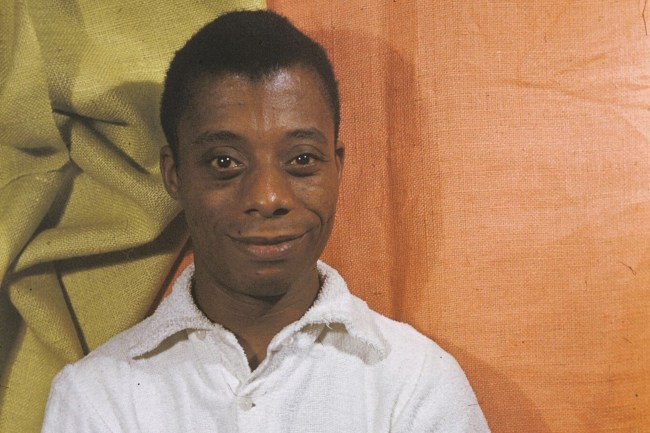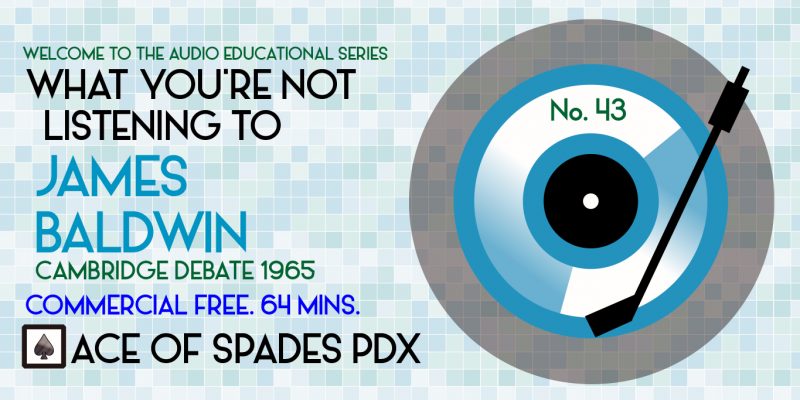Podcast: Play in new window | Download | Embed
One of the most lauded authors and civil rights activists of the 20th Century was Black and openly gay. #BHM2020
James Arthur Baldwin was born in Harlem, New York City, in 1924. He was the second oldest of a blended family that eventually included 10 children, with James being the second oldest. He described his stepfather as abusive and deeply religious. Upon his stepfather’s death, Baldwin and his mother did their best to care for the rest of the family. It was obvious to everyone that Baldwin was highly intelligent and creative. Sadly, because there were so few Black artists to draw inspiration from, Baldwin actually believed for a time that Black people probably could not make a living in a creative field.

Illustration by Boris Chaliapin.
Baldwin was also a boy preacher, which he stated was critical in his development in public speaking engagements later in life. He left home at after stints writing for various publications, and never went to college. Instead, he honed his skills on assignments, and was given several fellowships. He grew to hate conditions in the States for Black people, and moved to Europe for over a decade, writing several acclaimed novels, including Notes of a Native Son.
“I imagine one of the reasons people cling to their hates so stubbornly is because they sense, once hate is gone, they will be forced to deal with pain.”
James Baldwin
Realizing that problems were becoming much worse for people of color back home, Baldwin returned to the States and became a highly visible and outspoken civil rights activist. In 1963, he became the first openly gay person to ever appear on the cover of Time magazine. At the time, LGTBQi rights were not encompassed as part of greater civil rights causes, and Baldwin’s being out of the closet was a challenge for some in the movement.

Baldwin continued to publish novels, poems, plays and many essays for the remainder of his life. He eventually returned to Europe, befriending and hosting many other prominent Black artists, particularly Miles Davis, and the two were close for the rest of their lives. Baldwin preferred to live there in relative quiet and without constant harassment and interruption. He would continue to champion civil rights matters, even penning a well-known letter to Angela Davis, who had been incarcerated for a violent 1970 kidnapping. He would continue to write until the very end, and one of his unpublished, unfinished works, Remember This House, would become the basis for the Oscar-nominated documentary I Am Not Your Negro.
Cambridge Debate, 1965
“Is the American Dream at the expense of the American Negro?” Debate between conservative, white writer William F. Buckley and Baldwin about “the Negro Problem” in the United States. Baldwin won the debate 544 to 164 and was given a standing ovation, a first for a Cambridge debate in its entire history.
Love to you all.
Ben “Daddy Ben Bear” Brown Jr.
Host, Producer, Researcher, Webmaster, Audio Engineer and Writer
“Copyright Disclaimer Under Section 107 of the Copyright Act 1976, allowance is made for ‘fair use’ for purposes such as criticism, comment, news reporting, teaching, scholarship, and research. Fair use is a use permitted by copyright statute that might otherwise be infringing. Non-profit, educational or personal use tips the balance in favor of fair use.”
